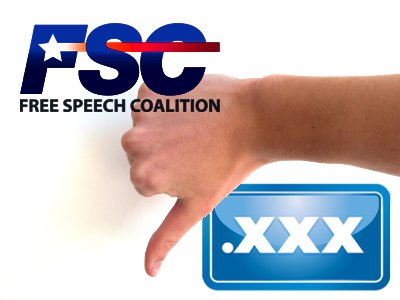Dot-xxx and Sponsorship Community Support: Bullshit
[COLOR=red]This is part two of “What’s Wrong with Dot-xxx,” a five-part series outlining the Free Speech Coalition’s assessment of the proposed adult-entertainment-specific sponsored Top Level Domain.[/COLOR]
 By Diane Duke
By Diane Duke
YNOT – Registrar-hopeful ICM Registry’s definition of the sponsorship community is:
The TLD Community will consist of the responsible global online adult-enter¬tain¬ment community (“Community”), generally defined as individuals, business, entities and organizations that: (i) have voluntarily determined that a system of self-identification would be beneficial, (ii) have voluntarily agreed to comply with all [International Foundation for Online Responsibility] Policies and Best Practices Guidelines, as published from time to time on the IFFOR web site.
The first part of this definition refers to the “responsible online community,” thereby labeling adult dot-com businesses as “irresponsible” by default. Does the adult entertainment community really want to support an entity that perpetuates the idea it is by definition irresponsible and thus in need of a new Top Level Domain to force it into responsibility? Uh … No.
The definition goes on to describe “responsible” businesses and organizations as those that “have voluntarily deter¬mined that a system of self-identification would be beneficial.” But we know better. The Free Speech Coalition has received numerous letters from companies representing thousands of dot-xxx pre-registrations. These companies voice outright opposition to the dot-xxx sponsored TLD and state that they have pre-registered defensively in order to protect their brands and internet traffic. In fact, by ICM’s own definition, these companies do not even qualify for a dot-xxx sTLD because they have not truly voluntarily agreed to anything and because they believe ICM’s proposed dot-xxx would be detrimental.
ICM has included these pre-registered companies in the demonstration of support for its application. But, ICM President Stuart Lawley told the adult community at an industry trade show in February 2007 that pre-registrations would not be used as a show of support for dot-xxx. A video of his comments may be viewed here.
Those who pre-registered for second-level domain names under dot-xxx did so in reliance upon Lawley’s representation that such pre-registration would not amount to a showing of support for ICM or for a dot-xxx sTLD.
To address this concern, FSC filed a Documentary Information Disclosure Policy request with ICANN for the list of dot-xxx pre-registrants who have been identified to ICANN. We also requested ICM’s Proof of Sponsorship Community Support as submitted to ICANN.
This is the response FSC received from ICANN regarding those requests:
[QUOTE]
ICANN asked ICM if it would remove the confidentiality designation from documentation sought in the Request, which would allow ICANN to publicly disclose information you are seeking. ICM has not responded to ICANN’s request, and thus ICANN is not in a position to publicly disclose the materials previously identified as confidential that are sought in the Request and in ICANN’s possession.
[/QUOTE]It has been reported that ICANN refused the information request, when in truth, it was ICM that refused to reveal the information. This is because ICM knew full well that when it gathered and then used pre-reservations to support its claims of support, it was misleadingly using defensive registrations by reluctant content providers rather than demonstrating any genuine support for ICM, IFORR or the dot-xxx sTLD. In our view, this was decep¬tion, pure and simple, and it leads us to suspect that ICM’s other “expression of support” data may be equally shoddy and/or deceptive. Indeed, any evidence of support that ICM has refused to subject — under any circumstances — to an informed critique must be viewed with utmost suspicion.
To make matters worse, with the expected rollout of thousands of new generic TLDs, it originally was thought that many of the new TLDs would reference sexual expression in some way. FSC would have had fewer problems with the application if dot-xxx were among a large group of sexually oriented gTLDs competing in the marketplace. However, with the likelihood that “controversial” TLDs will be limited in the gTLD process, it is now more likely that dot-xxx will stand alone not only as the sole “sponsored” TLD specifically devoted to sexu¬ally oriented expression, but as the only TLD representing sexually oriented expression, creating a virtual monopoly for ICM.
When asked if he would take a position against blocking new sexually oriented gTLDs, Lawley smiled and said, “I’m not willing to state my position at this point … but, I’m sure you can guess.”
ICM and Stuart Lawley claim to have the support of a broad base of the adult entertainment community. But the actual adult entertainment community knows better. We know that claim is … BULLSHIT.

Throughout March, ICANN’s board of directors plans to discuss some final issues with the internet regulatory body’s Governmental Advisory Committee before determining the next step in dot-xxx’s destiny. It is imperative that adult industry professionals understand the ramifications of this complex issue. In this five-part series, Free Speech Coalition Executive Director Diane Duke points out some of the adult industry trade association’s objections to dot-xxx and explains why owning the organization feels dot-xxx may be dangerous and detrimental to the adult entertainment industry.









